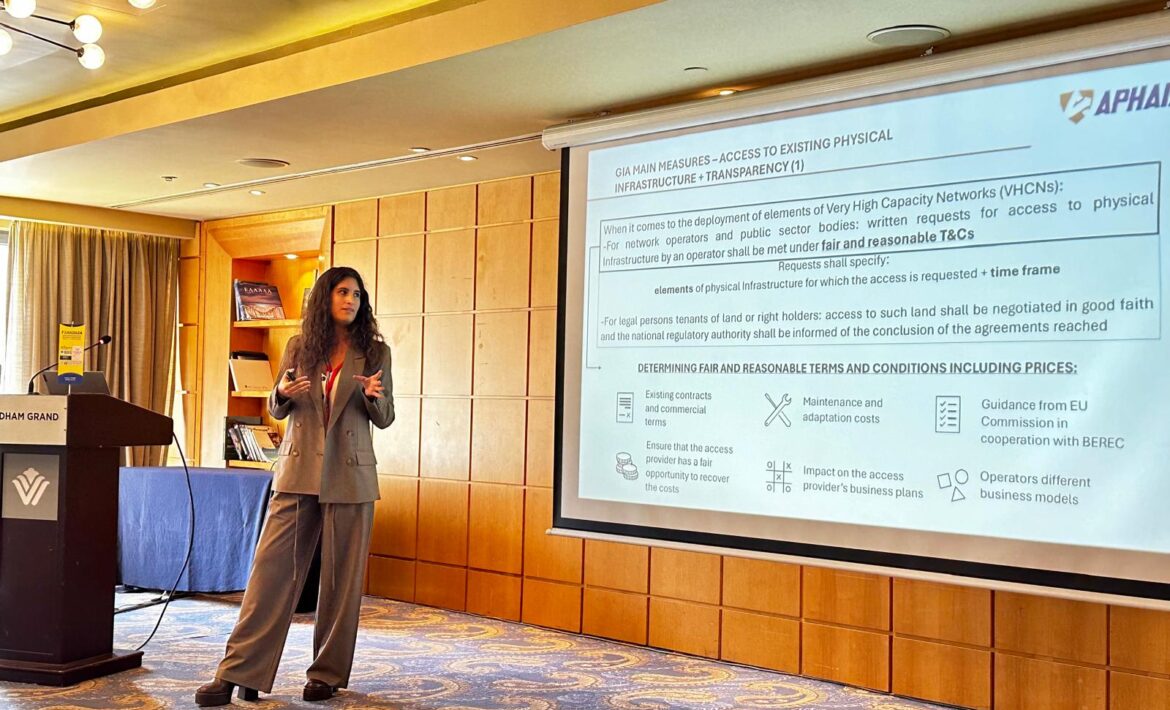Aphaia offers a presentation about the Gigabit Infrastructure Act at FOAN 2024
Aphaia’s Managing Partner Cristina Contero Almagro offered a presentation about the new Gigabit Infrastructure Act at the 12th International Workshop on Fiber Optics in Access Networks (FOAN), which took place in Athens on 29 and 30 October. The new Gigabit Infrastructure Act (GIA) entered into force in May 2024 and will be applicable in November 2025.















